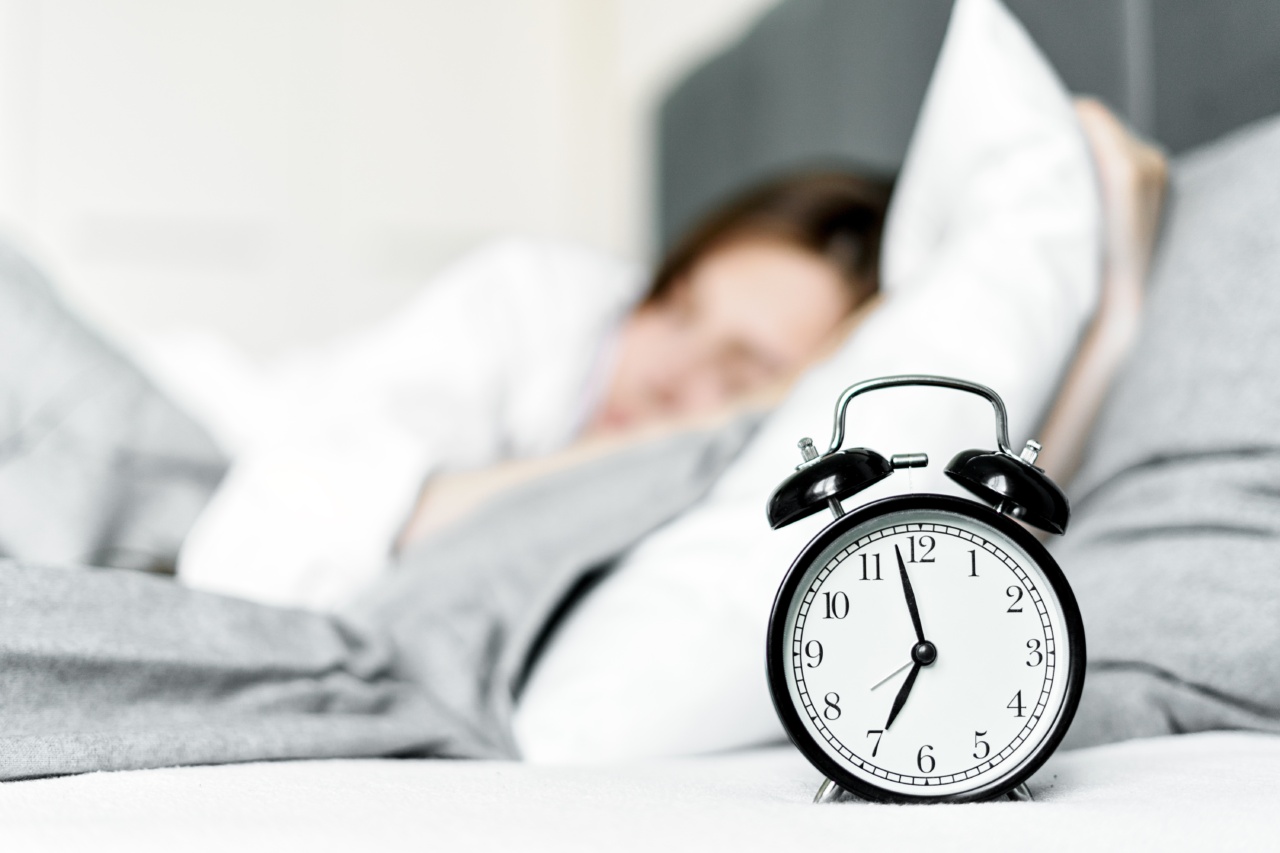Sleep is an essential part of our daily routine, allowing our bodies to rest and recharge. For optimal health, adults are recommended to get at least seven to eight hours of sleep each night.
However, in today’s fast-paced society, many individuals find it challenging to prioritize sleep and often end up sleeping less than the recommended amount. This raises concerns about the potential health consequences of sleep deprivation, including whether it can lead to a deficiency in essential vitamins.
The Importance of Vitamins
Vitamins play a crucial role in maintaining our overall health and well-being. They are essential for various biological processes, such as metabolism, immune function, and cell growth.
There are 13 essential vitamins, each with its unique functions and sources. These vitamins include vitamin A, B vitamins (B1, B2, B3, B5, B6, B7, B9, B12), vitamin C, vitamin D, vitamin E, and vitamin K.
The Link Between Sleep and Vitamin Absorption
While it may seem unrelated, research has shown that there is a connection between sleep duration and vitamin absorption. Adequate sleep enhances the body’s ability to absorb and utilize vitamins efficiently.
During sleep, our bodies undergo a series of restorative processes, including tissue repair, hormone regulation, and consolidation of memory. This restoration extends to our digestive system, where the absorption of nutrients takes place.
Vitamin D and Sleep
One particular vitamin that is closely linked with sleep is vitamin D. Known as the “sunshine vitamin,” vitamin D is primarily synthesized in our skin when exposed to sunlight.
However, it can also be obtained from certain foods and supplements. Vitamin D plays a crucial role in bone health, immune function, mood regulation, and sleep-wake cycles.
Studies have found a correlation between vitamin D deficiency and sleep disorders, such as insomnia and sleep apnea.
Sleep disturbances may contribute to vitamin D deficiency, as inadequate sleep has been shown to reduce the synthesis of vitamin D in the body. Conversely, low vitamin D levels may impair sleep quality and lead to sleep disturbances.
Vitamin C and Sleep
Vitamin C, also known as ascorbic acid, is a powerful antioxidant that supports various bodily functions, including immune health and collagen formation.
While it may not have a direct impact on sleep duration, vitamin C is crucial for maintaining overall health, which indirectly affects sleep quality.
During periods of sleep deprivation, the body undergoes additional stress, increasing the production of stress hormones. This elevation in stress hormones, such as cortisol, can deplete the body’s vitamin C levels.
In turn, a vitamin C deficiency may compromise the immune system and make individuals more susceptible to sleep-disrupting illnesses.
B Vitamins and Sleep
The various B vitamins, including B1 (thiamine), B2 (riboflavin), B3 (niacin), B5 (pantothenic acid), B6 (pyridoxine), B7 (biotin), B9 (folate), and B12 (cobalamin), are essential for energy production, metabolism, and nerve function.
These vitamins also play a crucial role in promoting good sleep quality.
Vitamin B6, in particular, is involved in the production of serotonin, a neurotransmitter that regulates sleep-wake cycles and mood. Adequate levels of vitamin B6 can help promote a sense of calmness and support healthy sleep patterns.
Similarly, vitamin B12 plays a vital role in melatonin production, a hormone that regulates the sleep-wake cycle.
The Impact of Sleep Deprivation on Vitamin Status
Chronic sleep deprivation can have detrimental effects on overall health and vitamin status. Sleep disruption or restriction affects the body’s ability to absorb and utilize vitamins efficiently, potentially leading to deficiencies.
When we sleep, our bodies release hormones that regulate appetite and satiety. Sleep deprivation disrupts this hormonal balance, leading to an increased desire for calorie-dense and nutrient-poor foods.
This can result in an inadequate intake of essential vitamins and nutrients, further contributing to deficiencies.
The Role of Nutrition in Sleep
While sleep duration affects vitamin absorption, it is worth noting that our diet also plays a crucial role in sleep quality and overall health.
A well-balanced diet rich in fruits, vegetables, whole grains, lean proteins, and healthy fats provides the necessary nutrients and vitamins to support optimal sleep and overall well-being.
Additionally, certain foods contain specific vitamins and minerals that can promote better sleep. For example, bananas contain magnesium and potassium, which help relax muscles and promote sleep.
Cherries, on the other hand, are a natural source of melatonin, the hormone that regulates sleep-wake cycles.
Conclusion
Sleep is an essential component of a healthy lifestyle, and its impact on overall health should not be underestimated.
While it is unlikely that sleeping less than seven hours directly leads to vitamin deficiencies, chronic sleep deprivation can compromise the body’s ability to absorb and utilize vitamins efficiently. Vitamin D, vitamin C, and B vitamins, in particular, have been linked to sleep quality and overall well-being.
To optimize both sleep and vitamin status, it is recommended to prioritize regular, adequate sleep and maintain a well-balanced diet that includes a variety of nutrient-dense foods.
By doing so, you can support not only your sleep but also your overall health and vitality.































